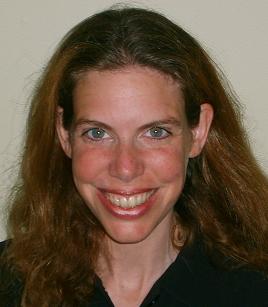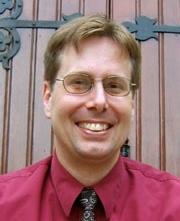| Translating Religion Courses to an Online Format: Introduction |
![PDF-NOTE: Internet Explorer Users, right click the PDF Icon and choose [save target as] if you are experiencing problems with clicking.](http://rsnonline.org/templates/rsntemplate-smallmasthead/images/pdf_button.png) |
 |
|
Page 1 of 3 Issue Editors: Ellen Posman, Baldwin-Wallace College, and Reid B. Locklin, University of Toronto
Translating Higher Education to the Internet?It seems that online education’s moment has arrived. Recently the British news magazine The Economist surveyed the possible impact of “massive open online courses” (MOOCs) offered by the likes of Udacity and Coursera (2012). These courses, which allow users to enroll online without paying any fee up front, offer a distinctive response to ever-increasing demand for higher education and the increased expense of offering it in traditional ways. And the threat to traditional education is real, at least in the minds of proponents. Udacity founder Sebastian Thrun, the Economist reports, “predicts that in fifty years there will be only ten universities left in the world.” Clay Shirky (2012, 2013), art professor and distinguished writer-in-residence at the New York University Arthur L. Carter Journalism Institute, offers the more nuanced suggestion that MOOCs represent a genuinely new model of education for the 90 percent of U.S. undergraduates who do not attend liberal arts colleges or elite state universities — a transformation analogous to the transformation of the music industry by the mp3. He writes: In the academy, we lecture other people every day about learning from history. Now it’s our turn, and the risk is that we’ll be the last to know that the world has changed, because we can’t imagine — really cannot imagine — that story we tell ourselves about ourselves could start to fail. Even when it’s true. Especially when it’s true. (Shirky 2012) We certainly have not yet achieved — or been subjected to, depending upon your point of view — the transformation envisioned by Thrun and Shirky; MOOCs are the province of a small number of hard-working faculty, have yet to cross the boundary from learning to credentialing successfully, and currently boast a modest 7.5 percent completion rate (though, of course, 7.5 percent of the median course enrollment of 33,000 is still a rather large number; see Kolowich 2013). Nevertheless, it is hard to argue with the broader trend toward online education. The Chronicle of Higher Education published a special issue dedicated to the “Digital Campus” in April 2012. Its lead article, entitled “Open Education’s Wide World of Possibilities,” features a Tibetan yak herder and educational reformer studying poetry at Yale University (Mangan 2012). Critics dismiss the large-scale transition to online teaching as a money-grab, as a betrayal of the public purpose of higher education, and as a method of content delivery that fundamentally distorts the affective, improvisational character of effective pedagogy (e.g., Bady 2012; Edmundson 2012; Tippens 2012; Bustillos 2013). Such protests, though well-taken, ultimately offer further demonstration of the historical reality: online education is here, seemingly to stay. Nor is it the province of outliers. Yale University, Stanford University, Harvard University, University of California, University of Wisconsin, MIT — all have made moves toward massive online education. Coeditor Reid Locklin’s institution, the University of Toronto, has also recently joined the fray (see https://www.coursera.org/utoronto). In this issue of Spotlight, our contributors suggest that, even if one demurs from Shirky’s radical conclusions, he has put his finger on precisely the issue that most needs our attention: imagination and the failure of imagination. As Justin Arft notes in his article, “Navigating the Sea of Cyberspace,” the shift to online education involves a complex process of translation. Not unlike language translation, translation from traditional educational models to online environments requires a greater or lesser reconceptualization of education itself. |
 Spotlight on Teaching
Spotlight on Teaching
 Ellen Posman is an associate professor of religion at Baldwin-Wallace College in Berea, Ohio. She holds degrees in religious studies from Stanford University, Harvard University, and the University of California, Santa Barbara. Her expertise lies in the area of comparative religion, with specializations in Buddhism and Judaism. Posman can be reached at
This e-mail address is being protected from spambots. You need JavaScript enabled to view it
.
Ellen Posman is an associate professor of religion at Baldwin-Wallace College in Berea, Ohio. She holds degrees in religious studies from Stanford University, Harvard University, and the University of California, Santa Barbara. Her expertise lies in the area of comparative religion, with specializations in Buddhism and Judaism. Posman can be reached at
This e-mail address is being protected from spambots. You need JavaScript enabled to view it
. Reid B. Locklin holds a joint appointment in Christianity and culture at Saint Michael’s College and at the Centre for the Study of Religion, both at the University of Toronto. A graduate of Boston University and Boston College, he is the author of Spiritual but Not Religious? (Liturgical Press, 2005), Liturgy of Liberation (Peeters, 2011) and other works in comparative theology, Christian ecclesiology, and spirituality. Locklin can be reached at
This e-mail address is being protected from spambots. You need JavaScript enabled to view it
.
Reid B. Locklin holds a joint appointment in Christianity and culture at Saint Michael’s College and at the Centre for the Study of Religion, both at the University of Toronto. A graduate of Boston University and Boston College, he is the author of Spiritual but Not Religious? (Liturgical Press, 2005), Liturgy of Liberation (Peeters, 2011) and other works in comparative theology, Christian ecclesiology, and spirituality. Locklin can be reached at
This e-mail address is being protected from spambots. You need JavaScript enabled to view it
.